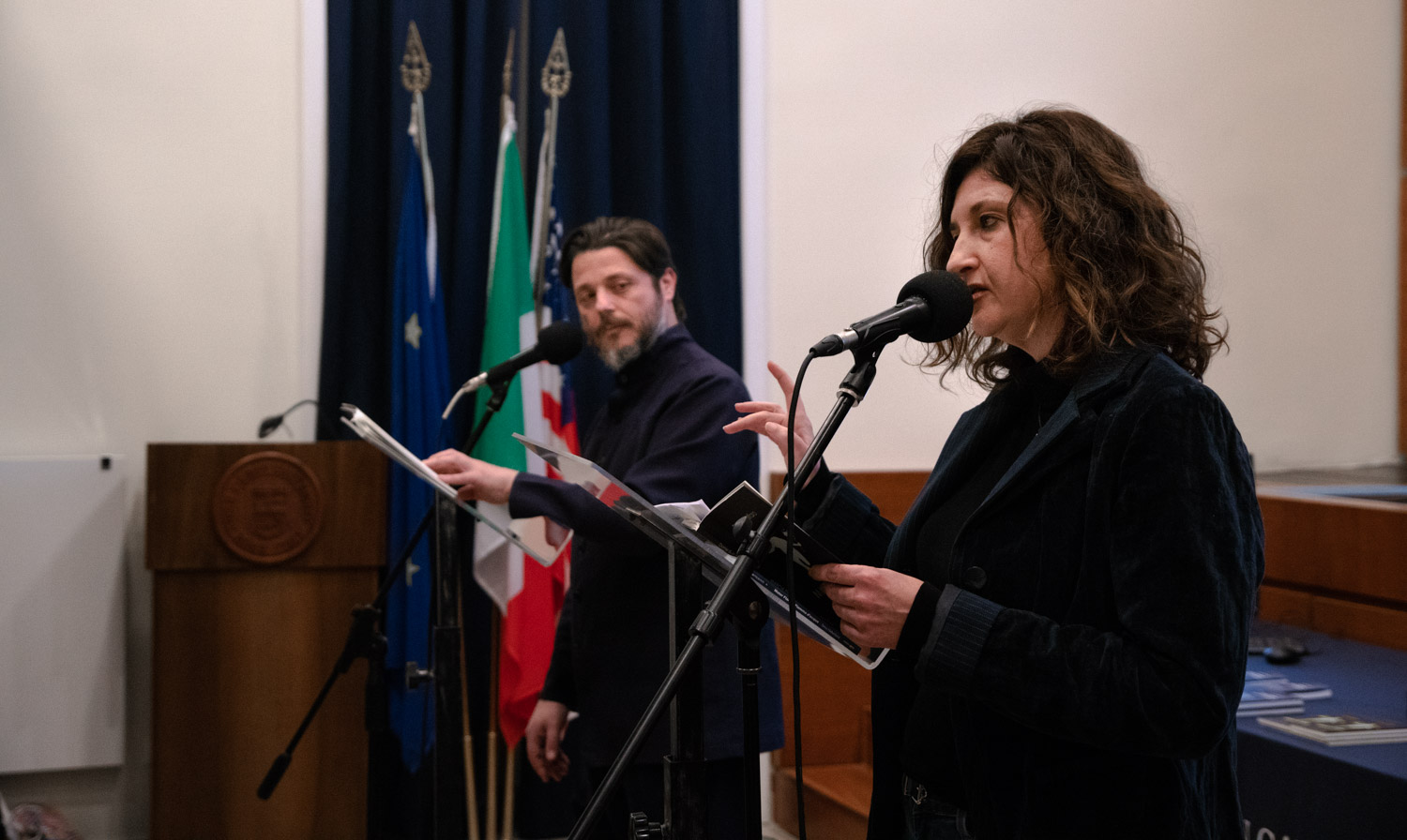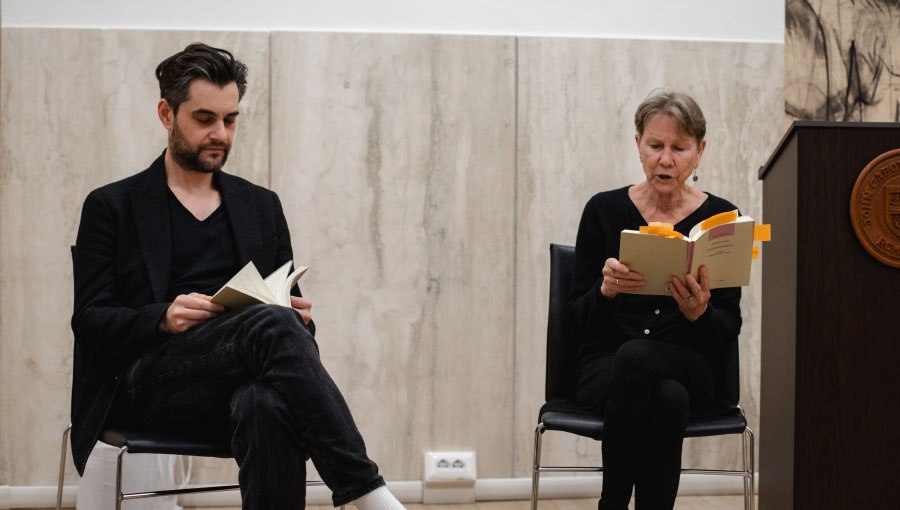JCU Welcomes Slam Poets Tania Haberland and Dome Bulfaro
JCU’s InVerse Poetry Festival welcomed poets Dome Bulfaro (Italy) and Tania Haberland (South Africa) for a unique poetic performance on February 14, 2019. Co-sponsored by the Departments of History and Humanities, English Language and Literature, and Modern Languages and Literature, the event, entitled “Creatures/Creature: A Bilingual Balancing Act,” was part of the Wow Poetry Slam, the first international-level tournament of slam poetry in Italy.
The two poets took turns performing their poetry, Haberland in English, and Bulfaro in Italian, and as one poet finished, the other offered the respective translation. At times, the poets contributed sound and movement to each other’s performances, creating a powerful and dynamic interplay between the two languages.

“Creatures/Creature: A Bilingual Balancing Act” From left: Poet Dome Bulfaro, and Poet Tania Haberland
Tania Haberland is a poet, artist, singer and teacher. Half Mauritian, half German, born in South Africa, she was raised in Saudi Arabia and matured in the US and Europe. She holds and M.A. in Creative Writing and her first book Hyphen won the Ingrid Jonker Prize. Tania currently works between Mauritius, Milan and Cape Town as part of CreatiVita, offering services in the art of wellbeing and learning. She has taught in public and private schools, shelters for abused women and refugees, centers for the learning disabled, as well as for a wide range of private clients.
Dome Bulfaro is a poet, performer, artist, and teacher who lives in Monza, Italy. Artistic director of PoesiaPresente, he is co-founder and President of LIPS, the Italian Poetry Slam League. He has published many poetry collections and has won several poetry prizes. Some of his work, translated by American poet Christopher Arigo, has been published in the U.S. (Interim 2006), Scotland (Luath Press/Torino Poesia 2009), Brazil (2014) and England (2012/2016).His latest books are Guida liquida al Poetry Slam (Agenzia X, 2016) and Marcia film (Scalino, 2016).
Professor Brunella Antomarini, who organized the event with professors Berenice Cocciolillo and Rosa Filardi, said, “The highly professional and intense performance revealed a quality that poetry usually hides, that is, the way the link between body, voice, and words allows listeners to be directly involved in the ‘making’ of sense.”





